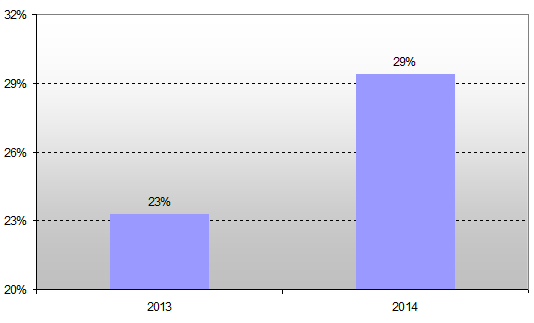 The popularity of Engineering as a career is soaring, according to Randstad, the engineering recruiter. The annual survey of over 9,215 Brits, found that the Automotive and Aerospace industries are perceived to be the most attractive to work in. While the engineering sector came in eleventh place, the research enjoyed a significant upswing in the popularity.
The popularity of Engineering as a career is soaring, according to Randstad, the engineering recruiter. The annual survey of over 9,215 Brits, found that the Automotive and Aerospace industries are perceived to be the most attractive to work in. While the engineering sector came in eleventh place, the research enjoyed a significant upswing in the popularity.
Last year, of respondents who knew one or more companies operating in the sector, just 23 per cent of those interviewed said engineering was as attractive industry to work in. By 2014, that had risen to 29 per cent.
Owen Goodhead, managing director of Randstad Construction, Property & Engineering said: “The engineering sector is now reaping a Top Gear dividend. While other sectors, like Oil & Gas and Business Services, have seen their appeal wane over the last year, Britain’s engineering sector has seen its attractiveness soar. A lot of that good-will comes in response to the sensational PR handed to the industry by Top Gear. The last episode of the 20th series – ‘Britain is Great’ – which was aired in the middle of 2013, was practically a love-letter to the British engineering industry. It was a soul-stirring piece of television that underlined just how much vehicle engineering, design and construction still goes on in the UK. By highlighting the high-value, hi-tech engineering companies in F1 as well as heavier machinery, Top Gear has also helped dispel the notion that ‘Britain doesn’t make things any more’. While the Automotive sector is, somewhat naturally, seen as the sexiest side of engineering, the wider sector as a whole has benefitted.”
The five least attractive sectors were named as Business Services, Utilities & Energy, Transport & Logistics, Leisure, and Insurance.
The poll was carried out as part of the annual Randstad Award, the largest piece of independent international employer branding research in the world, capturing the views of approximately 200,000 people across 23 countries. The award aims to identify the most attractive large employers in different countries, as judged by the working population.
The research found that automotive giant BMW, which employs approximately 18,000 people in the UK alone, was named the country’s most attractive large employer overall, whilst multi-disciplinary engineering brand Rolls Royce plc was the second most attractive large employer in the UK. Retailer John Lewis came in third position.
Randstad has also conducted research into how well people felt their friends understood their jobs. While just over half of the general public said their friends understood their jobs (51 per cent), only 45 per cent of engineers could say the same.
Owen Goodhead said: “If the industry can do a better job explaining exactly what it involves to young people, perhaps we can encourage more to get into the profession.”
Randstad says the number of qualified engineers working in the UK has fallen by almost 7 per cent since 2008 as fewer graduates move into the industry and tight immigration rules are making it hard for businesses to employ skilled overseas labour.
Sir James Dyson recently lamented onerous immigration rules being to blame for discouraging foreign engineering talent to either move to or to stay in the UK following university and even stated that British firms may be forced to move to locations where “engineers are made welcome”.


